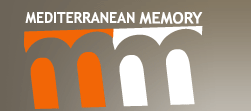Lakhdar Belloumi (Algeria) |

|
Collection title
Portraits of legendary footballers
First broadcast date
2007
Abstract
Lakhdar Belloumi was a great Algerian footballer.
His career lasted 24 years. He played mainly in Oran and Algiers in the 70's and 80's.
International, he was crowned with the African Golden Ball in 1981.
He won the Championship in Algeria in 1988, with MC Oran .
Production companies
-
COPEAM - Coproduction
- Radio Nationale algérienne (Oran) - Coproduction
Primary theme
Sport and games
Context
Lakhdar Belloumi
Stéphane Mourlane
Lahkar Belloumi is considered one of the greatest players in the history of Algerian football. While continuing his career almost exclusively in his country, he belonged to the best generation of the national team in the 1980s, which earned him international recognition.
He was born in Mascara (December 18th 1958), in the northwest of Algeria, and began playing football in the club of a local company, Olympique Dempac. After a year in El Khemis, in 1976 he joined Mascara’s main club, Ghali Club de Mascara, founded in 1925 during the colonial period. His technical ability attracted the attention of Amara Saeed, the coach for Oran’s Mouloudia Club who later became famous by leaving Strasbourg to join the team of the FLN. Saeed’s teammate in the "eleven of independence" and star of Saint Etienne, Rachid Mekhloufi, selected the young Belloumi who was not yet 20 for the Algerian team. But Belloumi had first to fulfill his military service.
Sent to Algiers, from 1979 to 1981 he played for Mouloudia Club of Algiers. The dean of Algerian football clubs – it was founded in 1921 – had just won the national championship while two years earlier, in 1976, it had won the African Cup. Belloumi enabled the Algiers club to win a new national title. Despite the interest of major European clubs, he cannot leave Algeria because his federation prohibited any transfer abroad for players under 28, unless they had the permission of the President of the Republic. In 1982 Belloumi went back to his original club which, with him, won its first national championship in 1984. For him, of course it was his second. His third, he won with MC Oran for whom he played again between 1986 and 1988. He had his one and only brief experience of a season abroad in the Qatari club Al-Arabi. He then continued his career in Algeria, alternating between Oran and Mascara.
In 1999, when he retired from sport, Belloumi had 147 caps for Algeria. He played in four African Nations’ Cups, including the first in 1980, where the Fennecs were only beaten in the final against their Nigerian hosts. He also played in that year's Moscow Olympics. But his international career, like the Fennec’s, was marked by the 1982 World Cup in Spain. He had just received the African Golden Ball, for the best player on the continent, and was playing alongside talented footballers like Mustapha Dahleb, Rabah Madjer, Nordine Kourichi and Salah Assad. Within this "golden generation" Belloumi did extremely well, in particular scoring the winning goal against West Germany. This victory against one of the great football nations, almost twenty years to the day after the proclamation of independence in Algeria, created an extraordinary collective joy: all over the country crowds at least as large as on July 5th 1962 came down into the streets to celebrate the Fennecs’ feat. The victory had a symbolic value in the wider field of the relationship of the north-south domination which Algerian diplomacy was trying to change by investing in the non-aligned movement. "The game of shame" in which West Germany and Austria play in such a way that both are sure to qualify for the rest of the tournament at the expense of Algeria, however, put an end to euphoria, which gave way to a feeling of being victimized (several years later the arrangement was admitted). The opportunity was thus given for Algerians to celebrate the unity of their country, with their football team as the binding cement. Like his teammates, Belloumi became a national hero.
In 1989, Belloumi was implicated in an unpleasant affair: behind the scenes before a volcanic match against Egypt to qualify for the African Nations’ Cup, he was accused of assaulting the Egyptian team’s doctor in Cairo. There was uproar, but at no time did public opinion or the Algerian authorities withdraw their support. Indeed 20 years later President Bouteflika intervened directly with his Egyptian counterpart Mubarak, paving the way for the accusation to be withdrawn and the arrest warrant issued by Interpol to be lifted. Anyway Belloumi reputation was not harmed. He is, for some, the best player in the history of Algerian football while the African Confederation has placed him fourth among African players of the twentieth century.
Bibliography:
Fates Youssef, Sport et politique en Algérie, Paris, L’Harmattan, 2009, 346 p.
Dietschy Paul, Gastaut Yvan, Mourlane Stéphane, Histoire politique des Coupes du monde de football, Paris, Vuibert, 2006, 346 p.
Grine Hamid, Lakhdar Belloumi, un footballeur algérien, Alger, Édition Enal , 1986.






















